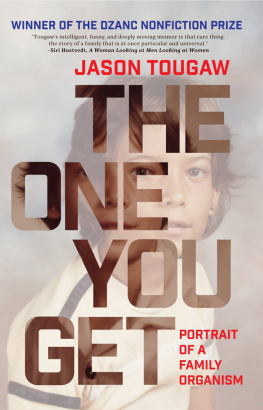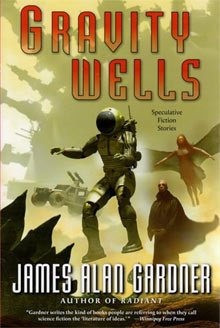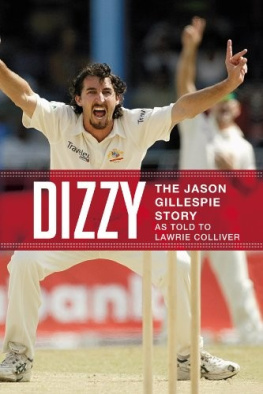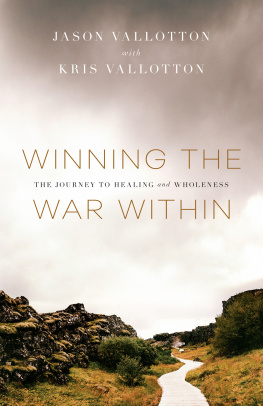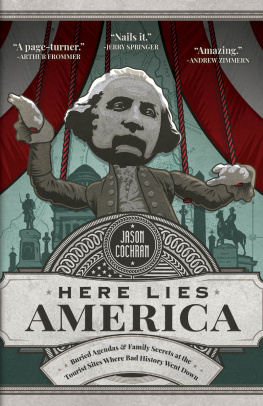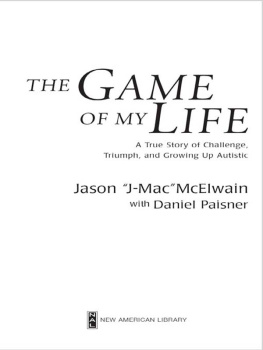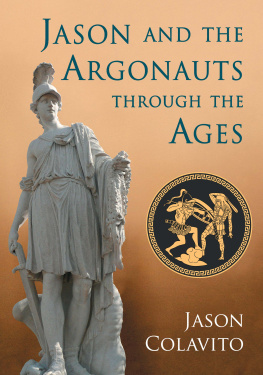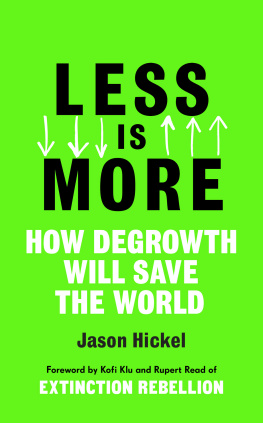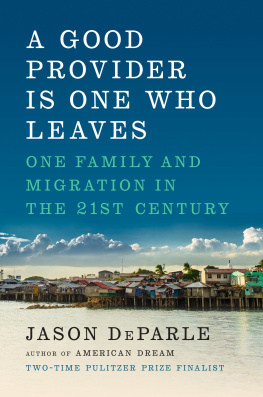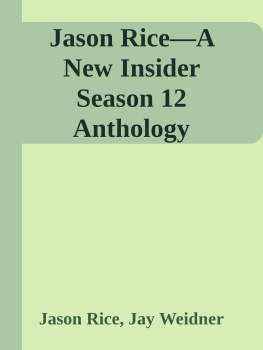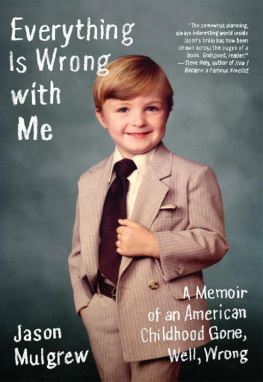Jason Tougaw - The One You Get: Portrait of a Family Organism
Here you can read online Jason Tougaw - The One You Get: Portrait of a Family Organism full text of the book (entire story) in english for free. Download pdf and epub, get meaning, cover and reviews about this ebook. year: 2017, publisher: Dzanc Books, genre: Detective and thriller. Description of the work, (preface) as well as reviews are available. Best literature library LitArk.com created for fans of good reading and offers a wide selection of genres:
Romance novel
Science fiction
Adventure
Detective
Science
History
Home and family
Prose
Art
Politics
Computer
Non-fiction
Religion
Business
Children
Humor
Choose a favorite category and find really read worthwhile books. Enjoy immersion in the world of imagination, feel the emotions of the characters or learn something new for yourself, make an fascinating discovery.
- Book:The One You Get: Portrait of a Family Organism
- Author:
- Publisher:Dzanc Books
- Genre:
- Year:2017
- Rating:3 / 5
- Favourites:Add to favourites
- Your mark:
- 60
- 1
- 2
- 3
- 4
- 5
The One You Get: Portrait of a Family Organism: summary, description and annotation
We offer to read an annotation, description, summary or preface (depends on what the author of the book "The One You Get: Portrait of a Family Organism" wrote himself). If you haven't found the necessary information about the book — write in the comments, we will try to find it.
The One You Get: Portrait of a Family Organism — read online for free the complete book (whole text) full work
Below is the text of the book, divided by pages. System saving the place of the last page read, allows you to conveniently read the book "The One You Get: Portrait of a Family Organism" online for free, without having to search again every time where you left off. Put a bookmark, and you can go to the page where you finished reading at any time.
Font size:
Interval:
Bookmark:
ADDITIONAL PRAISE FOR
THE ONE YOU GET
An utterly unique memoir...a portrait, not only of the boy, but also of the man using a set of tools, including social theory and neuroscience, to disentangle the strands that make the self. Whether we are shocked by the conditions of his young lifeaddiction, abuse, mental illness, mosh-pit erectionsis up to us. Tougaws just trying to get to the bottom of it all.
Vestal McIntyre, Lake Overturn and You Are Not the One
Tougaws book is about the ways we explain ourselves when our histories are complex, when they dont fit what most people understand as a story. This is a book for those of us who understand how complicated, torturous, joyful, painful, funny, and lonely family can be.
Kaitlyn Greenidge, We Love You, Charlie Freeman
A marvel of investigation and invention. This is a boys life, down to the cellular level, peppered with rumination on everything from dream theory to neuroscience, punk rock and new wave lyrics. It is like nothing else in this world, pure body and soul, and I love it.
Scott Cheshire, High as the Horses Bridles
Tougaws intelligent, funny, and deeply moving memoir is that rare thing: the story of a family that is at once particular and universal. The variously wild, tender, deluded, suffering, incorrigible, and resilient people who are so vividly portrayed in this book are nothing if not idiosyncratic. At the same time, this story of a boy growing up in California during the years of a waning counterculture deftly incorporates sophisticated reflections on the brain science of human memory and development and the ongoing mystery of why some of us survive a chaotic and brutal childhood and others dont.
Siri Hustvedt, A Woman Looking at Men Looking at Women


5220 Dexter Ann Arbor Rd.
Ann Arbor, MI 48103
www.dzancbooks.org
T HE O NE Y OU G ET . Copyright 2017, text by Jason Tougaw. All rights reserved, except for brief quotations in critical articles or reviews. No part of this book may be reproduced in any manner without prior written permission from the publisher: Dzanc Books, 5220 Dexter Ann Arbor Rd., Ann Arbor, MI 48103.
Library of Congress Cataloging-in-Publication Data
Names: Tougaw, Jason Daniel, author.
Title: The one you get : portrait of a family organism / by Jason Tougaw.
Description: New York, NY : Dzanc Books, 2017.
Identifiers: LCCN 2017003746 | ISBN 9781945814556 (eBook)
Subjects: LCSH: Tougaw, Jason Daniel--Family. | Authors, American--21st century--Biography. | Gay college teachers--United States--Biography. | Families--Health. | Identity (Psychology)
Classification: LCC PS3620.O8877 Z85 2017 | DDC 813/.6 [B] --dc23
LC record available at https://lccn.loc.gov/2017003746
First US edition: September 2017
Interior design by Michelle Dotter
Cover design by Driverworks LLC
Jacket design by Steven Seighman
Printed in the United States of America
10 9 8 7 6 5 4 3 2 1
CONTENTS
For Nichole and Buffy, who lived it with me.
And for Summer, who lived it until she didnt.

THE SAN LUIS REY
FUCK THE BABY, I shout from the toddler seat of the shopping cart. Its my first sentence, announced with glee at Jonathans, San Diegos most expensive grocery store. Nanny is taking my mom shopping to celebrate our new life without Charlie, my father, whos probably in prison by now.
Fuck the baby, I shout again. My mom and Nanny are quiet at first, but they give in and let their laughter splutter. Jonathans is huge, a chaos of clean light. My sentence bounces off the jars and cans that line the polished aisles.
Cathy, shut him up.
Why me? Just find the Grey Poupon and lets get out of here.
Because youre his mother, for Godssake.
A pair of women in their sixties round the corner. You can tell they belong from their penciled eyebrows, pearls, and pocketbooks. Fuck the baby. My mom presses a hand over my mouth. The women have stopped their carts to observe. I yelp a muffled four syllables. If youve heard me already, theyre unmistakable.
I dont remember this, but I knew what I was doing, theyll tell me later. I was conscious of their embarrassment, egged on by their blushing and laughing.
Lets get out of here, Nanny says, and the laughter bursts through their ribs again. The women with pocketbooks push by, careful to avert their eyes.
Okay, we just need bread and a can of salmon, my mom says, rolling the cart at top speed, one hand still clamped over my mouth.
And a bottle of wine, Nanny says. I think he wore himself out anyway. Didnt you, Unigagin? (Unigagin is her nickname for everybody.) They collect the salmon, seven-grain, and Chianti and head for checkout.
You finished, Boog? my mom asks.
Fuck the baby. All eyes are on uswomen shopping, checkout clerks, the pharmacist thirty feet away. Nanny and my mom are beyond controlling themselves.
Sssh. Jason, shush, my mom says.
For Godssake, Jason.
My moms hand is back on my mouth. Nanny has tightened her face and reached into her purse. She presses her lips together as she pays, but the cashiers stare lets her know her laughter is still visible.
The three of us are collaborators in this scene. Well pass the blame around later. I was just a baby . Whod I learn the words from, anyway? Ill say. Certainly not me , Nanny will say, not even convincing herself. Yeah right , my mom will chime in. Who was the one laughing? The truth is, we all want the blame. We love this idea of ourselves, a trio of rabblerousers enjoying the clean-lit luxury of Jonathans while raising our middle fingers to its propriety.
If fuck the baby really was my first sentenceas my mom and Nanny will insistits almost too good to be true. How could I, at eighteen months, have found a sentence wry enough to bundle the terrifying, liberating, and hilarious chaos of being raised by Southern California hippies during the 1970s, in a family that had just fallen from wealth and celebrity, trying to figure out how to live as the counterculture revolution evaporated like a dream?
When I moved to New York in 1993, I found myself telling people about my California hippie childhood. Distance seemed to loosen my lips. I talked about the near abortion, living on a converted school bus, my heroin-addict father in prison. About growing up hippie and poor in the shadow of luxuries we no longer enjoyed, except by talking about them, constantly. About Ralph, my famous jockey grandpa who squandered his fortune; about Nanny (or Midge), his wife, whose best friend was Betty Grable. About the drugs my elders swallowed and the addicts they became. I listed mental illnesses and described our endless moving from house to house, my moms many abusive boyfriends, her many marriages and divorces. Why arent you more fucked up? people kept asking.
At first, Id shrug. My familys lore had done its job. While the sensational details are largely true, theyve also been refined, through decades of retelling, to provoke questions like this. Of course, what people really meant was, How did you survive? and Why do you seem so different from the people who raised you? The first question is the one the lore is designed to elicit. Its answer casts us as unlikely heroes, survivors. The second is less self-serving, a version of an undeniable philosophical question that haunts us all: How did I become me ?
Its a hard question to answer. You might say it started with a fetus not flushed down a Tijuana river thats really an estuary in North County. You might say you have to understand California in the seventies, or the tenderness of both my mom and Nanny, or genetics and human physiology. You might have to shoot x-ray beams through my head at various ages and develop cross-sectional photos of the meat inside; slide me into a noisy fMRI and measure the oxygenation of cerebral blood flow; saw through my skull and insert tiny electrodes that measure localized energy exchanges; inject me with radioactive materials so the PET can measure their emissions as they decay; and poise a halo of helium-soaked coils over my head to measure the faint magnetism of the electricity buzzing around in there. Even if this were possible, the yield of information would likely be modest. You might learn some things, and some of them might be telling. But despite what some neuroscientists think, neural networks and selfhood are not the same thing. They are fundamentally related, and their relationship is fascinating. But neurons alone do not explain self, or if they do, we are not even close to knowing how.
Next pageFont size:
Interval:
Bookmark:
Similar books «The One You Get: Portrait of a Family Organism»
Look at similar books to The One You Get: Portrait of a Family Organism. We have selected literature similar in name and meaning in the hope of providing readers with more options to find new, interesting, not yet read works.
Discussion, reviews of the book The One You Get: Portrait of a Family Organism and just readers' own opinions. Leave your comments, write what you think about the work, its meaning or the main characters. Specify what exactly you liked and what you didn't like, and why you think so.

